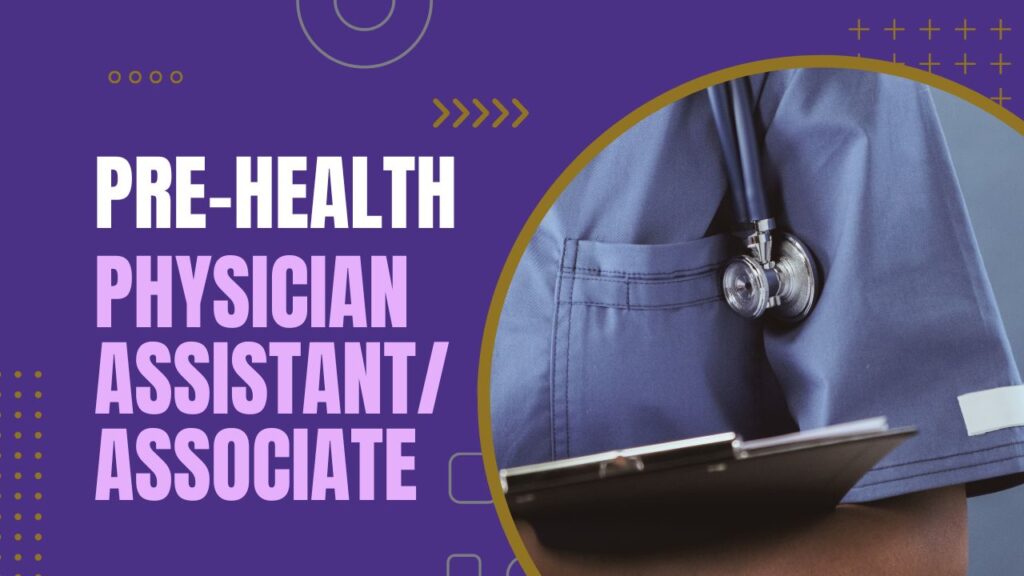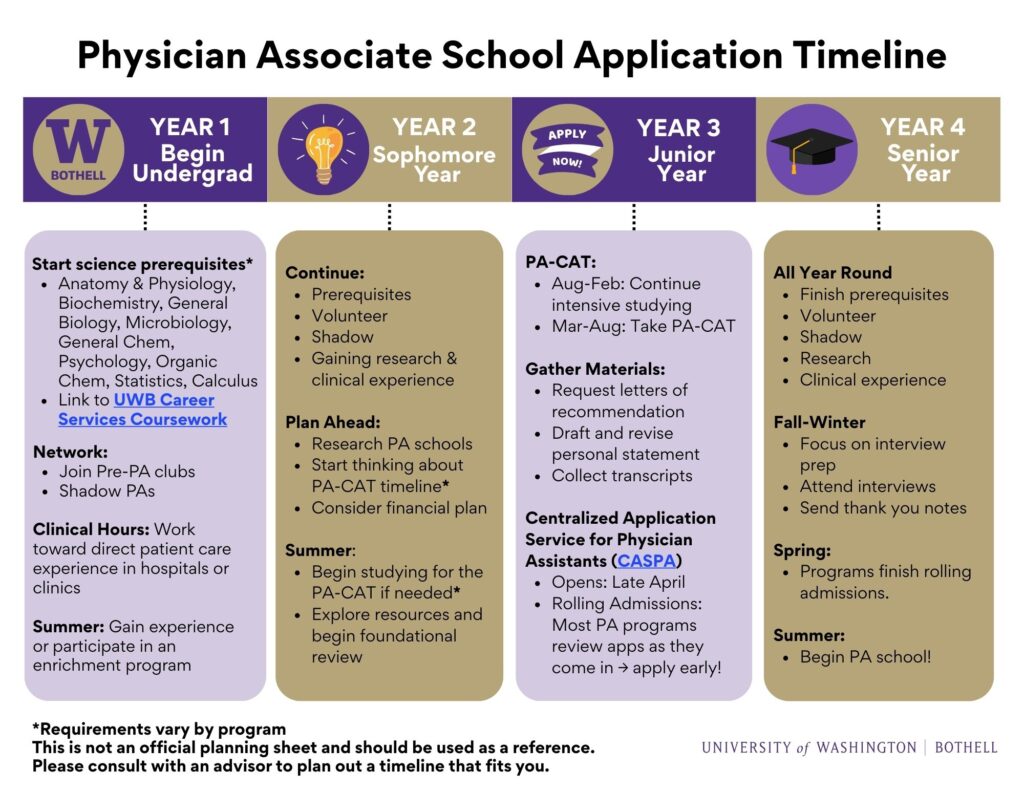Physician Assistant/Associate

Overview
A physician assistant or associate (PA) practices medicine under the direction of a physician and is a valuable member of a team. To learn more about the scope of practice for a PA, you can refer to the American Academy of Physician Associates. They also provide an excellent resource on how to become a PA.
In order to get into a PA program, you must complete an undergraduate degree in your major of choice and complete the prerequisite courses that are required by most PA programs. In addition to the academic requirements, PA programs typically require that students have extensive hours of paid, hands-on, direct patient and clinical care.
Application
Visit the Apply page for more on prerequisite coursework and grades, transcripts, activities, personal statements and letters of recommendation in general.
Application Timeline
Requirements vary by program. This is not an official planning sheet and should be used as a reference. Please consult with an advisor to plan out a timeline that fits you.

- Start science prerequisites: Anatomy & Physiology, Biochemistry, General Biology, Microbiology, General Chem, Psychology, Organic Chem, Statistics, Calculus based on placement/prior coursework – UWB Career Services Coursework
- Network: Join Pre-PA clubs, shadow PAs
- Clinical Hours: Work toward direct patient care experience in hospitals or clinics
- Summer: Gain experience or participate in an enrichment program – Applications due in January/February – UWB Getting Experience
- Continue: Prerequisites, volunteer, shadow, gaining research & clinical experience
- Plan Ahead: Research PA schools – PA School Finder
- Consider schools’ academic and experiential requirements, modify timeline as necessary
- Consider financial plan
- Summer: Begin studying for the PA-CAT (if needed), Explore resources and begin foundational review
- PA-CAT: Aug-Feb: Continue intensive studying, Mar-Aug: Take PA-CAT
- Gather Materials: Request letters of recommendation, Draft and revise personal statement, Collect transcripts
- Centralized Application Service for Physician Assistants (CASPA)
- Opens: Late April
- Rolling Admissions: Most PA programs review apps as they come in → apply early!
- All Year: Finish prerequisites, volunteer, shadow, research, clinical experience
- Fall-Winter: Focus on interview prep, interviews, send thank you notes
- Spring: Programs finish rolling admissions
- Summer: Begin PA school!
Resources
- CASPA – Central Application Service for Physician Assistants/Associates
- CASPA Applicant Guide
- CASPA Personal Statement Checker
University of Washington (MEDEX) – NOTE: MEDEX has suspended admission for the upcoming cycle. They are not accepting applications to the program at this time.
- PAEA Program Directory
- PA Focus – Learn more about the PA profession, information on applying and much more.
- PA School Finder
- American Academy of Physician Associates (AAPA)